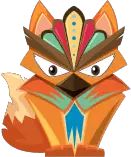Categories :
Random geography

Hi, It's me Gerenimot!
Generate a word.
What is Geography?
Geography is the science that deals with the earth, lands, seas, plants and animals, and the inhabitants of the earth. Geography is also the science of studying the earth and its characteristics. Geography is the study of the earth and its characteristics. The main branches of geography are:
- physical geography
- human geography
- economic geography
physical geography:
Physical geography is the study of the earth and its characteristics. The main features are landforms and landforms, climates and physical environment, water and oceans, rocks and minerals, vegetation and landforms.
Human Geography:
Human geography is the study of the distribution of people on earth and their activities and interactions. The main features are people of a nation, people of a region and places, cities and towns.
Economic geography:
Economic geography is the study of the earth's resources and their use. The main characteristics are natural resources, man-made resources, economic activities and economic systems.
Random Word Generator
The Random Word Generator is a tool to help you create a list of random words. The tool generates random words for you to use in your writing or other creative projects.
Random in Computers
Computers can generate truly random numbers if given a source of entropy. This is used in cryptography where truly random numbers are needed, for example for creating encryption keys. Computers can also be used to simulate random events. By generating a series of random numbers from a stochastic process, like a Poisson process or a Markov process, a simulation of the process itself can be obtained. This is used in computer animation for the generation of natural looking phenomena, for example the way water flows in a stream. Random number generation is also used in statistical sampling to generate a representative sample from a population. If a sequence of numbers is naively generated from a true random number generator, the numbers may appear to have a pattern. The period of this pattern is the length of the seed number used. Once the whole seed number has been used, the sequence repeats. Since computers can only store and manipulate numbers as a discrete set of values, in practice all computer-generated random numbers are random. That is, each number is associated with a specific algorithm and stream of data, and the characteristics of that data affect the numbers generated. In other words, the sequence of numbers is determined by the program, which is a deterministic process. The problem is that if the algorithm is not truly random, it is possible, by examining the patterns in the sequence of numbers, to predict future values in the sequence. This is a form of statistical attack. This can be countered by changing the seed number periodically. With each new seed, a different sequence is started, which as far as is known, has an unpredictable pattern. This is exactly what is done for the sequences in many types of random number generators, including those used in computer graphics and games. In these applications, the sequence of numbers is usually displayed. Anyone who knows the algorithm can then "re-seed" the generator, with the seed number found from the sequence, and thus generate the same sequence of numbers. In computer graphics, this is not considered a problem, as what is being displayed is the pattern, not the numbers. In cryptography and computer security, however, it is a problem, since an attacker can use such a sequence of numbers to predict future values. random numbers are random enough for most practical purposes. For example, they may be used in simulations involving games of chance, like poker or blackjack. The random numbers are used to determine the outcome.

 Categories
Categories